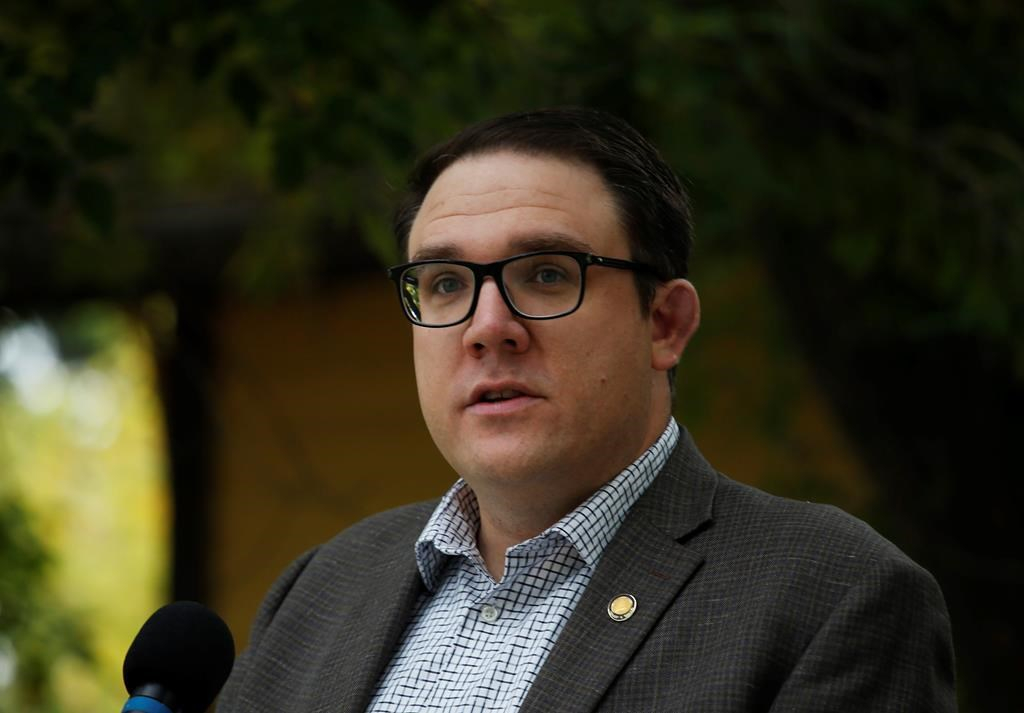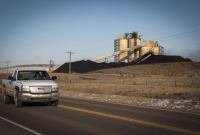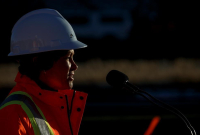Support strong Canadian climate journalism for 2025
Alberta's environment minister said Thursday there's no plan to change water allocations in the province's arid southwest.
"There is no proposal that has been put forward to change the allocation for water to go to coal mines," said Jason Nixon in the legislature.
Nixon was responding to Opposition Leader Rachel Notley after she brought up an Alberta Environment information briefing for stakeholders last fall that addressed water management in the area.
That briefing came after the United Conservative government announced plans to dramatically expand coal mining in the area. People in the area have since been concerned about where the water for those mines will come from.
On Tuesday, a resolution at the Rural Municipalities Alberta convention passed with 85 per cent support calling on the province to ensure the region continues to receive adequate supplies.
Notley said local leaders are right to be worried.
"(Government) proposed a number of things, including the reallocation of almost 40 per cent of the water from agriculture to coal. People are very distressed this proposal was made."
But Nixon said the document is part of ongoing consultations, mostly to ensure fish habitat remains viable.
"The water basin will remain protected. There has been ongoing consultation, primarily around fish habitat."
Flow in the Oldman River basin is fully allocated. Water licences must be transferred and purchased from current holders.
Industrial use and irrigation are classified separately. Most water in the drought-prone area is reserved for agriculture, held in reserve even if most of it goes unused in any one season.
The presentation proposed combining the old industrial and agricultural classifications. It would reserve 20 per cent of the river's flow for fish habitat and river health and allocate whatever's left over.
It suggested that would make water available for two coal mines while still providing for current agricultural needs.
"Approximately (6.8 million cubic metres) remains available after two proposed coal projects, if approved," the document said.
"We will table those documents and I look forward to having the minister get up and explain how he didn't know what was going on," said Notley.
Premier Jason Kenney said the documents were part of regular water management talks.
"There is consultation going on with respect to fish and with respect to the overall water availability for all of those who draw on (it). It's perfectly normal and it's what we should be doing."
The Oldman Watershed Council, composed of First Nations, governments, municipalities and other stakeholders, has been cautious about the briefing's proposal.
It notes there's no scientific evidence that saving 20 per cent of the river's flow is enough to protect its environment.
There would be agricultural impacts, it says.
"Upstream of the Oldman reservoir, the impact is clear: producers would lose their current exclusive access to the (more than 11 million cubic metres) set aside for irrigation."
And it warns that industrial water withdrawals from small streams, especially during low-flow periods, would have much larger impacts than the volumes of water suggest.
Other observers have suggested the plan outlined in the briefing would disrupt long-established markets for water licences.
This report by The Canadian Press was first published March 18, 2021.






Comments